Abstract
We have matched the red absorption band measured at −196 C in a variety of chloroplast preparations with four major component curves representing forms of chlorophyll a having peaks at 661.6, 669.6, 677.1, and 683.7 nanometers. Chloroplast fractions enriched in one or the other of the two photochemical systems both contain these four major components, but system 1 preparations contain relatively more chlorophyll a 684. Chlorophyll a 677 and chlorophyll a 684 have greater bandwidths in system 1. Bands at longer wavelengths near 693 and 704 nanometers also often occur, but with far smaller heights than the above major bands. The longer wavelength bands are more common in system 1 than in system 2. In system 1 the half-widths of the four major bands in typical spectra average 11.3, 10.0, 10.3, and 10.8 nanometers while in system 2 they are 11.6, 9.8, 9.4, and 9.6 nanometers. Some spectra with sharper and some with wider bands were found, but the wavelengths were identical.
Full text
PDF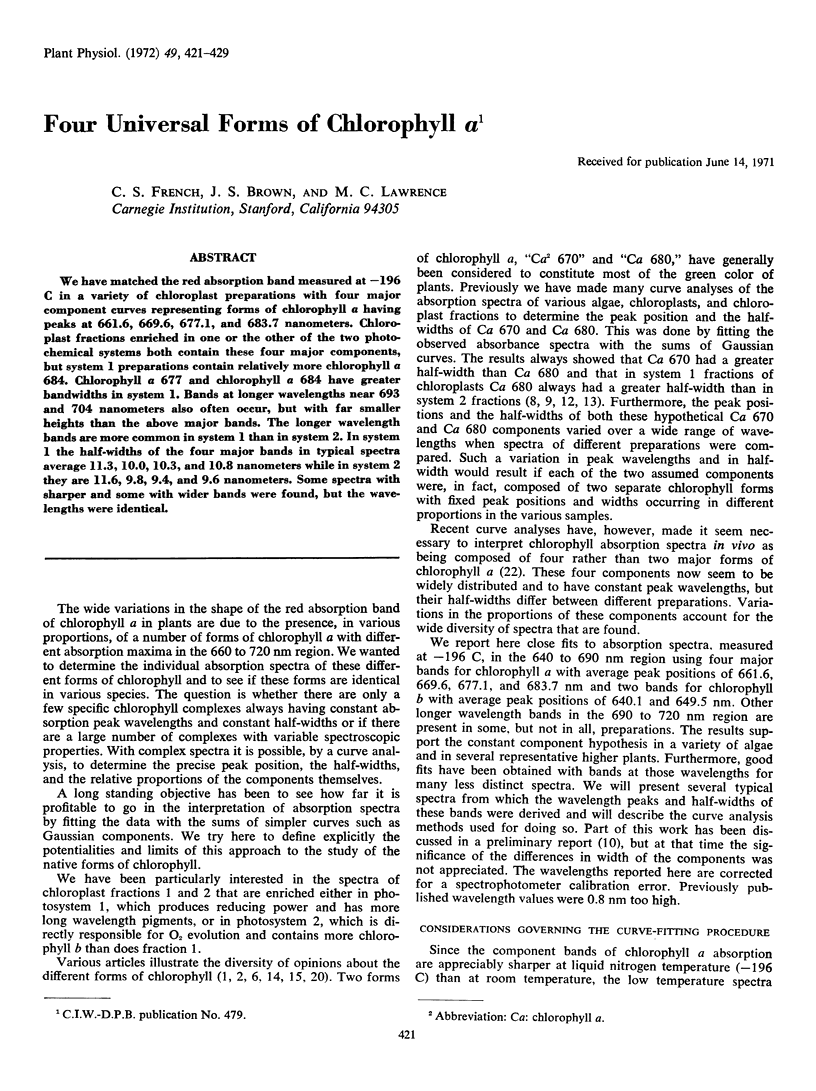
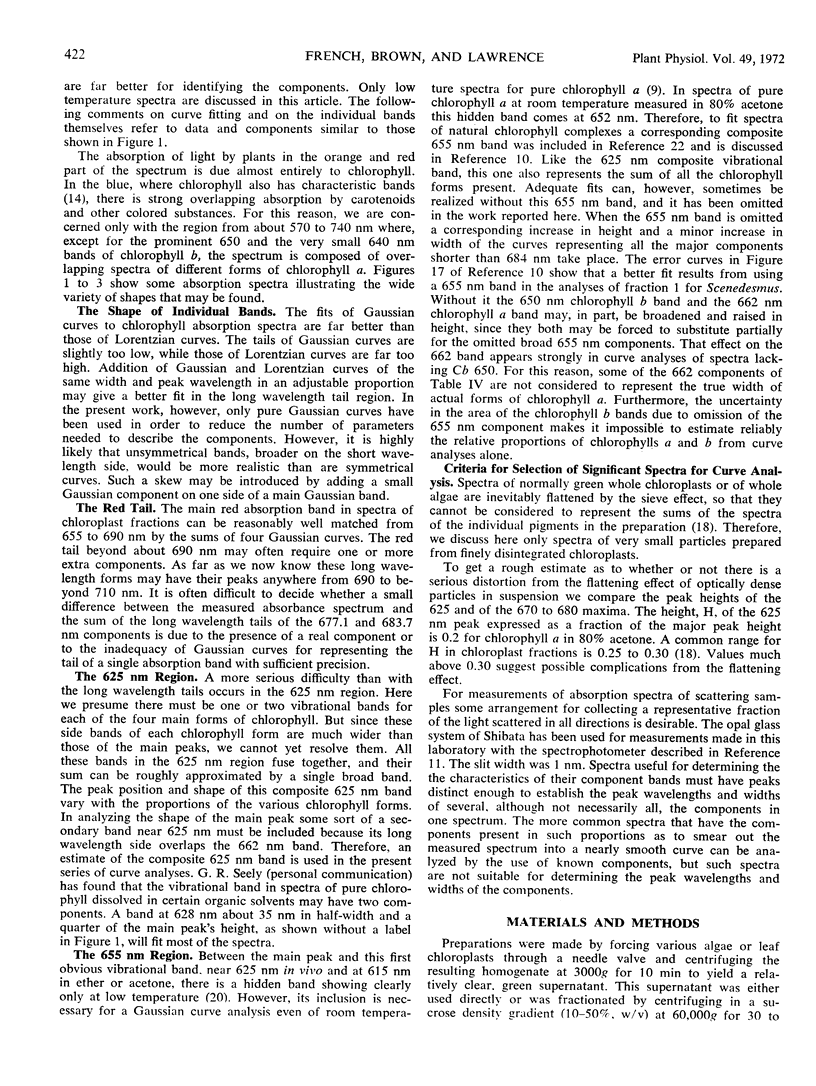
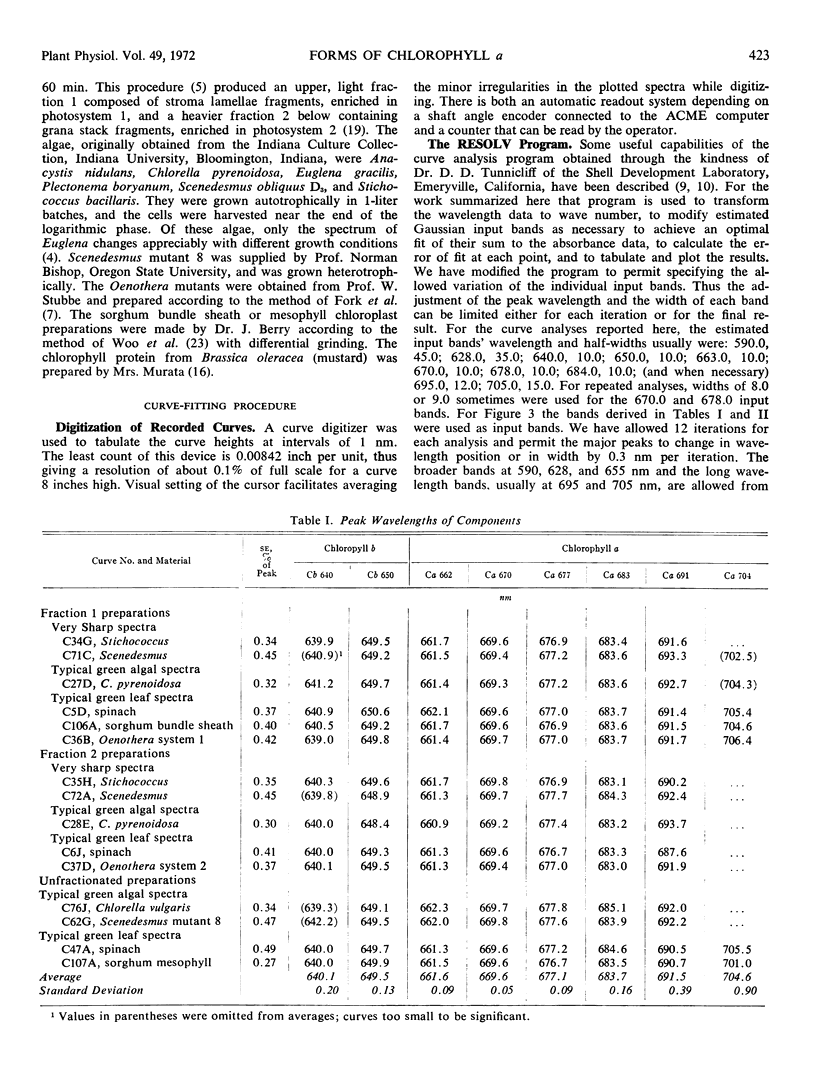
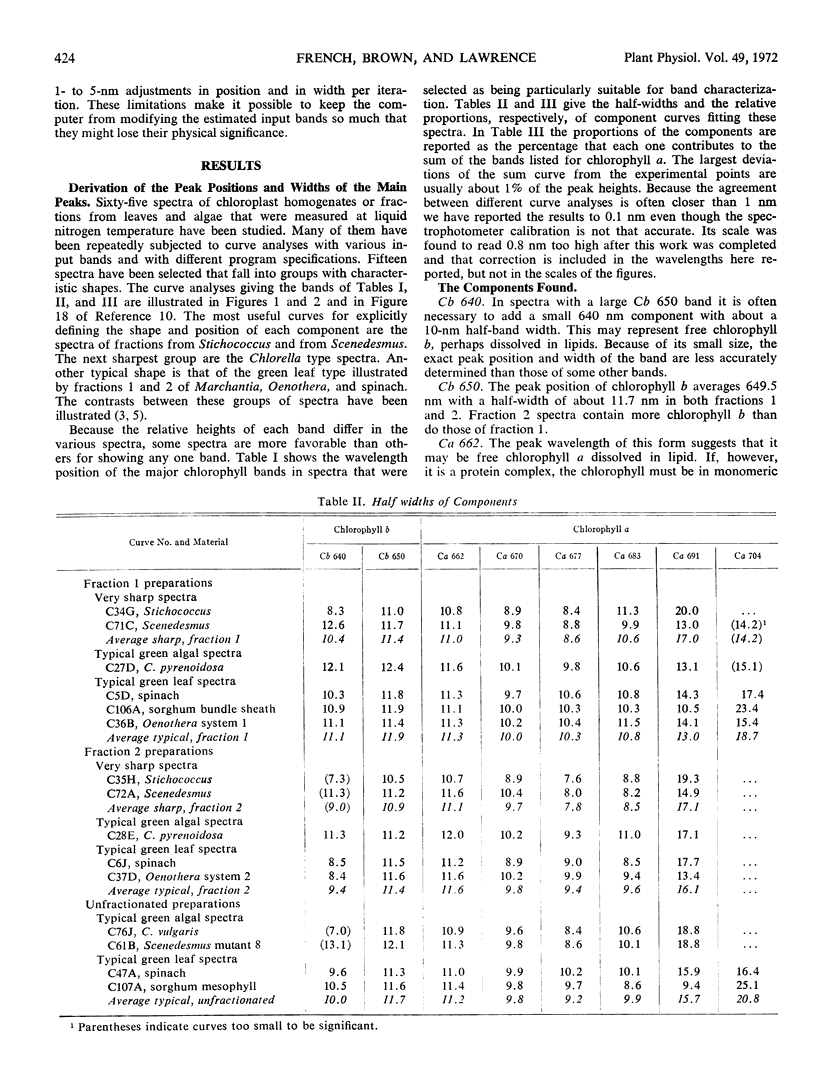
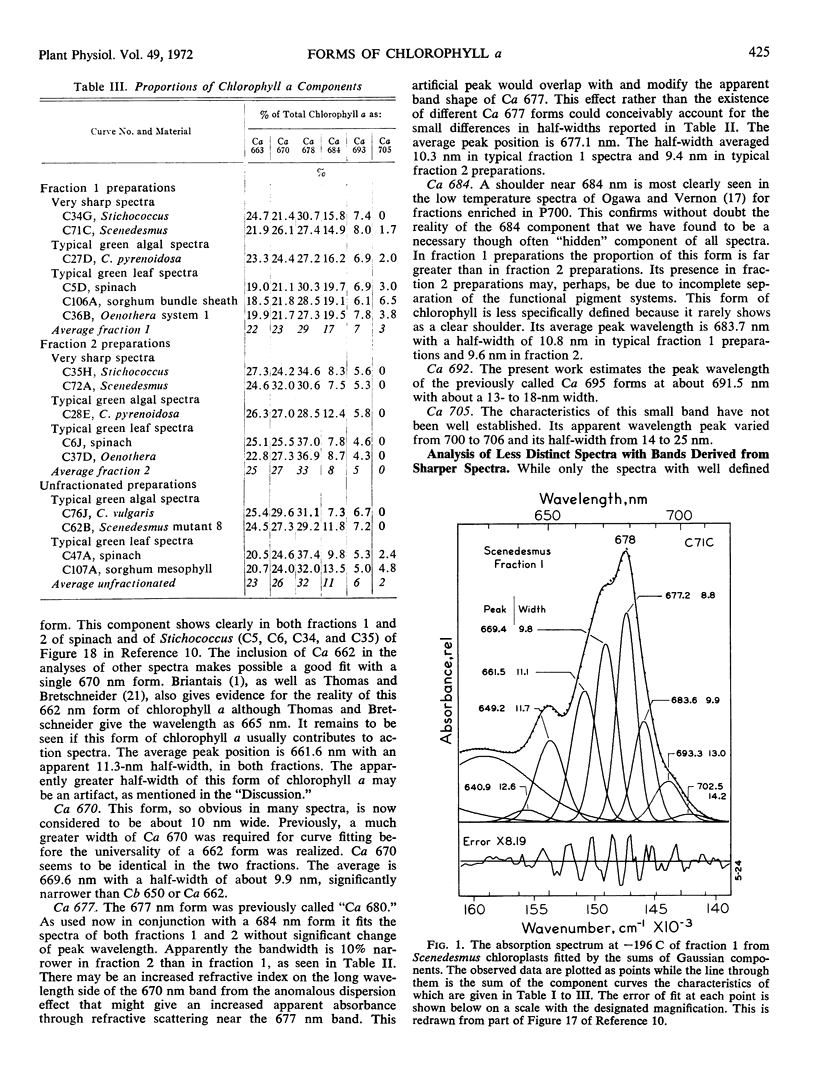
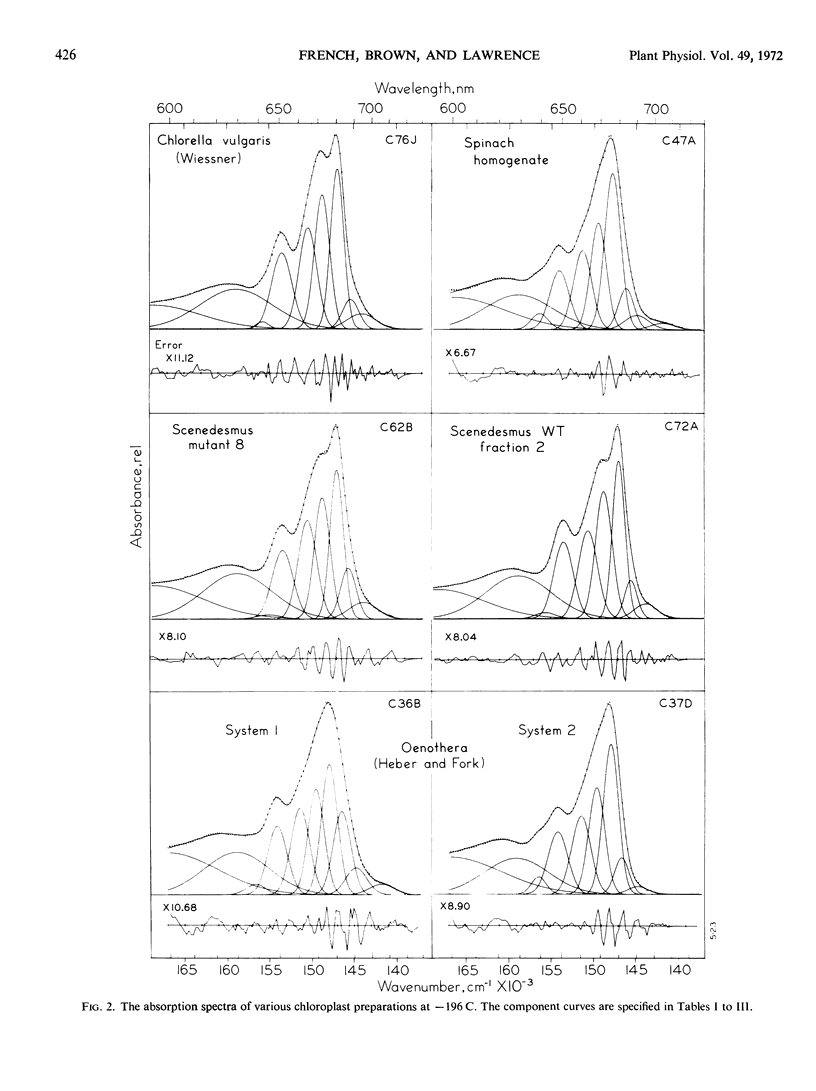
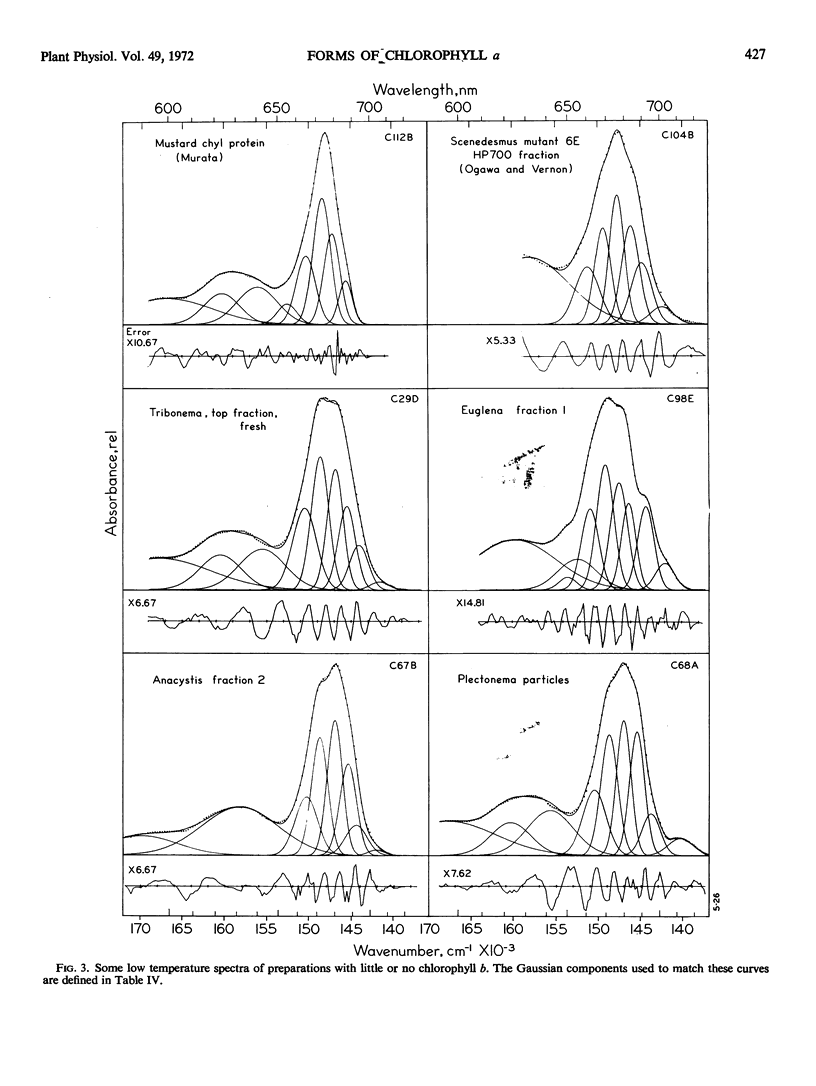
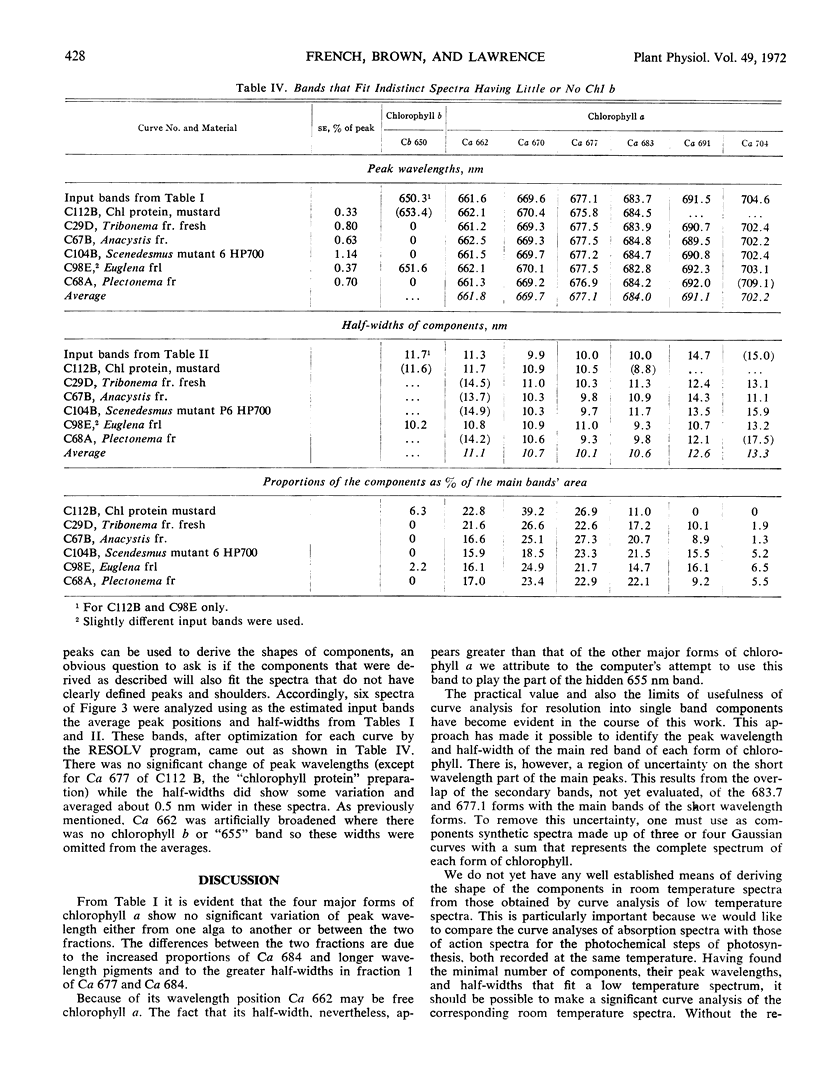
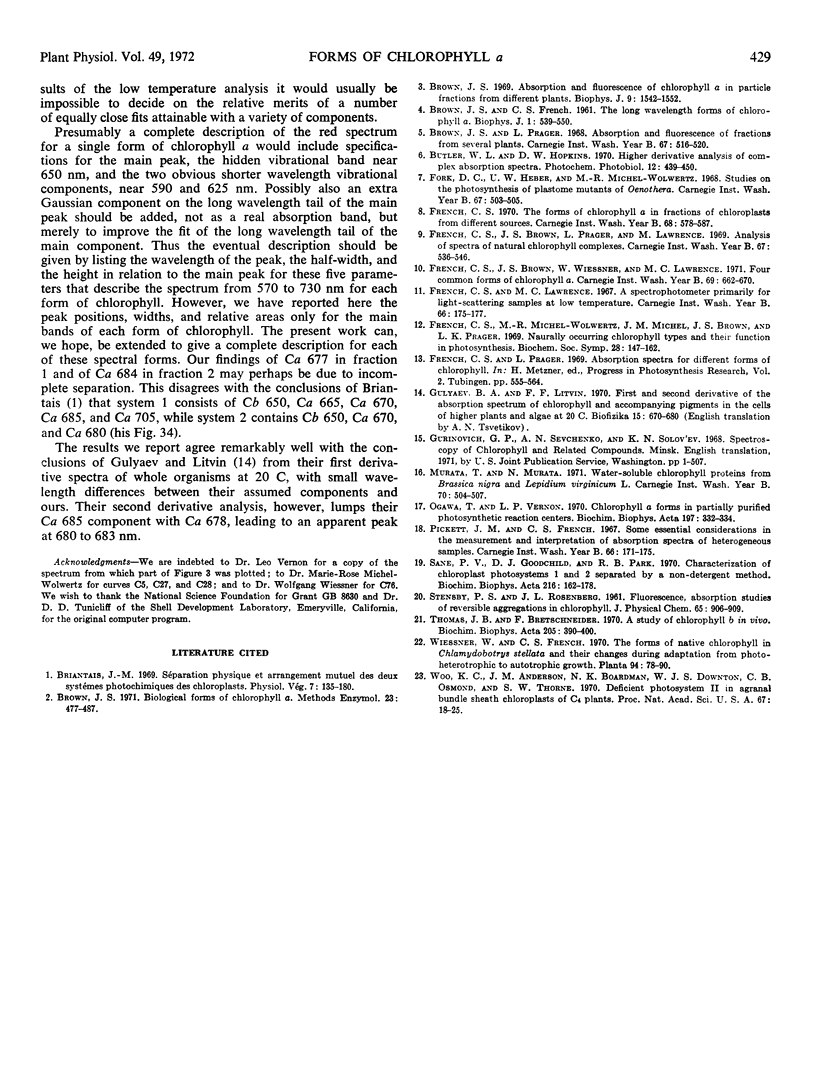
Selected References
These references are in PubMed. This may not be the complete list of references from this article.
- BROWN J. S., FRENCH C. S. The long wavelength forms of chlorophyll a. Biophys J. 1961 Sep;1:539–550. doi: 10.1016/s0006-3495(61)86907-5. [DOI] [PMC free article] [PubMed] [Google Scholar]
- Brown J. S. Absorption and fluorescence of chlorophyll a in particle fractions from different plants. Biophys J. 1969 Dec;9(12):1542–1552. doi: 10.1016/S0006-3495(69)86469-6. [DOI] [PMC free article] [PubMed] [Google Scholar]
- French C. S., Michel-Wolwertz M. R., Michel J. M., Brown J. S., Prager L. K. Naturally occurring chlorophyll types and their function in photosynthesis. Biochem Soc Symp. 1968;28:147–162. [PubMed] [Google Scholar]
- Ogawa T., Vernon L. P. Chlorophyll a forms in partially purified photosynthetic reaction centers. Biochim Biophys Acta. 1970 Mar 3;197(2):332–334. doi: 10.1016/0005-2728(70)90047-2. [DOI] [PubMed] [Google Scholar]
- Sane P. V., Goodchild D. J., Park R. B. Characterization of chloroplast photosystems 1 and 2 separated by a non-detergent method. Biochim Biophys Acta. 1970 Aug 4;216(1):162–178. doi: 10.1016/0005-2728(70)90168-4. [DOI] [PubMed] [Google Scholar]
- Thomas J. B., Bretschneider F. A study of chlorophyll b in vivo. Biochim Biophys Acta. 1970 Jun 30;205(3):390–400. doi: 10.1016/0005-2728(70)90105-2. [DOI] [PubMed] [Google Scholar]
- Woo K. C., Anderson J. M., Boardman N. K., Downton W. J., Osmond C. B., Thorne S. W. Deficient Photosystem II in Agranal Bundle Sheath Chloroplasts of C(4) Plants. Proc Natl Acad Sci U S A. 1970 Sep;67(1):18–25. doi: 10.1073/pnas.67.1.18. [DOI] [PMC free article] [PubMed] [Google Scholar]


